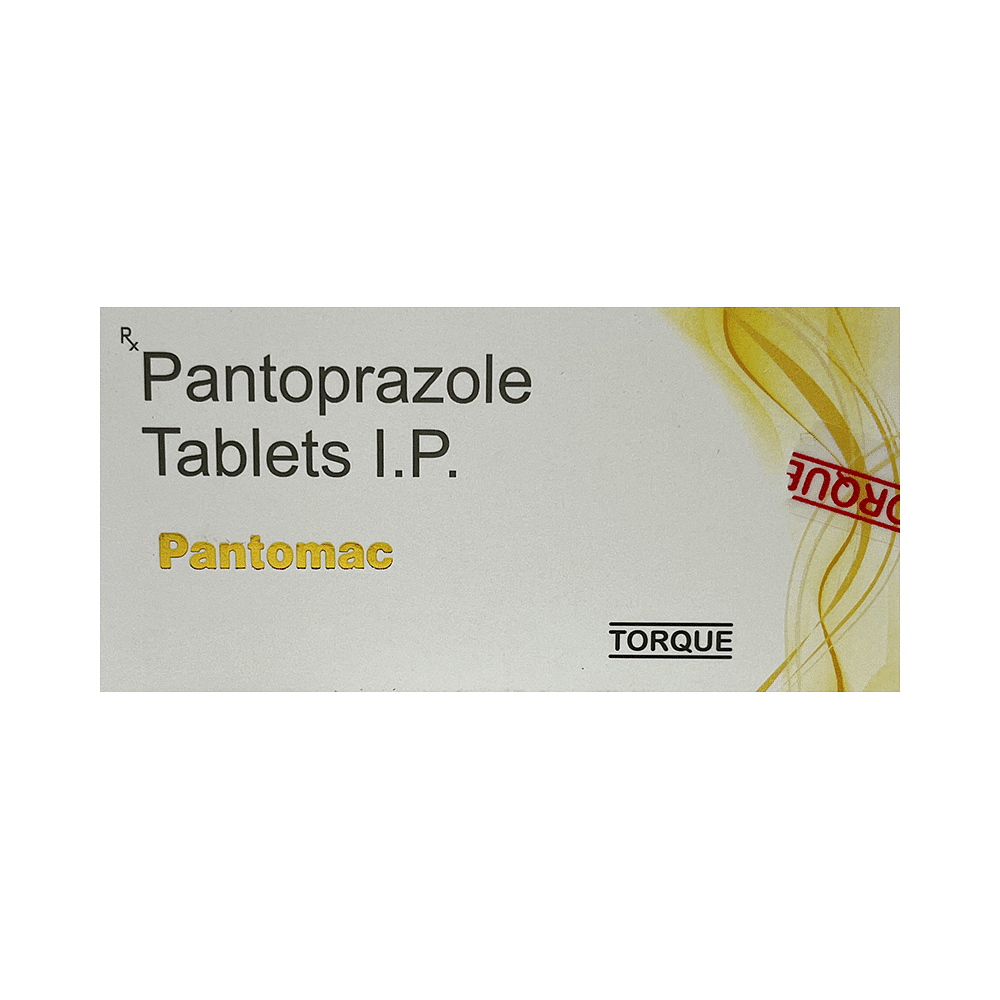
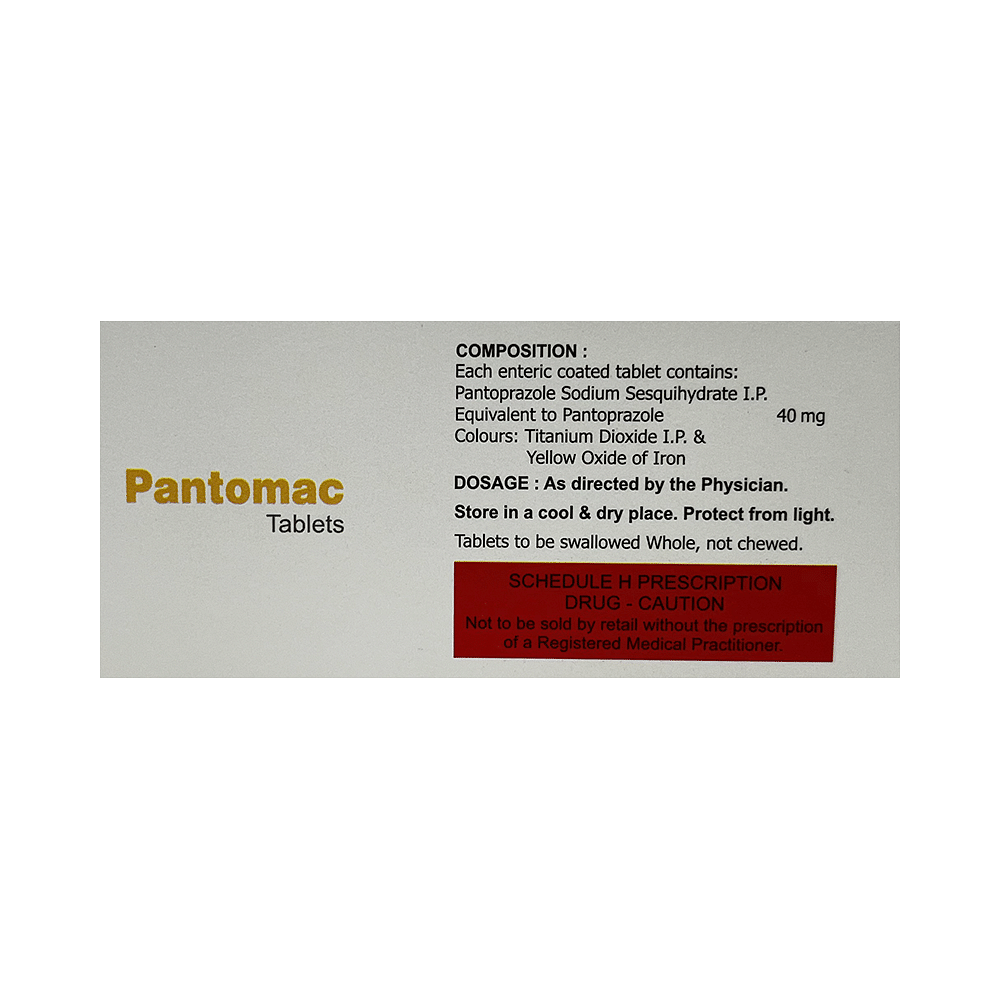
Pantomac Tablet
Manufacturer
Torque Pharmaceuticals Pvt Ltd
Salt Composition
Pantoprazole (40mg)
Key Information
Short Description
Pantomac Tablet reduces stomach acid production and is used for treating acid-related diseases such as heartburn, acid reflux, peptic ulcer disease, and Zollinger-Ellison syndrome.
Dosage Form
Tablet
Introduction
Pantomac Tablet is used to prevent stomach ulcers and acidity, especially with prolonged use of painkillers. It belongs to the proton pump inhibitors (PPIs) class. This medicine should be taken one hour before a meal, preferably in the morning. Common side effects include nausea, vomiting, headache, dizziness, flatulence, diarrhea, and stomach pain. Long-term use may increase the risk of bone fractures. Consult your doctor if you have severe liver problems, are taking HIV medicines, have had allergic reactions to similar medicines, or suffer from osteoporosis. Pregnant or breastfeeding women should also consult their doctor before taking it.
Directions for Use
Take this medicine in the dose and duration as advised by your doctor. Swallow it as a whole. Do not chew, crush, or break it. Pantomac Tablet is to be taken on an empty stomach.
Safety Information
Side Effects
Nausea Vomiting Headache Dizziness Flatulence Diarrhea Stomach pain
Alcohol Warning
It is unsafe to consume alcohol with Pantomac Tablet.
Breastfeeding Warning
Pantomac Tablet is probably safe to use during breastfeeding. Limited human data suggests that the drug does not represent any significant risk to the baby.
Pregnancy Warning
Pantomac Tablet may be unsafe to use during pregnancy. Consult your doctor for more information.
Interacting Medicines
Atazanavir Cilostazol Indinavir Nelfinavir
How it works
Pantomac Tablet is a proton pump inhibitor (PPI). It works by reducing the amount of acid in the stomach, which in turn relieves acid-related indigestion and heartburn.
Quick Tips
Pantomac Tablet should be taken 1 hour before a meal, preferably in the morning. It is a well-tolerated medicine and provides relief for a long time. Avoid excessive intake of carbonated beverages, citrus juices, fried food, and caffeinated beverages. Avoid alcohol and smoking. Avoid eating late at night or before bedtime. Inform your doctor if you get watery diarrhea, fever, or stomach pain that does not go away. Inform your doctor if you do not feel better after taking it for 14 days. Long-term use can cause weak bones and mineral deficiencies. Take adequate dietary intake of calcium and magnesium or their supplements as prescribed by your doctor. Do not stop taking medication without talking to your doctor. Consult your doctor right away if you develop decreased urination, edema, lower back pain, nausea, fatigue, and rash or fever.
Related Medicines
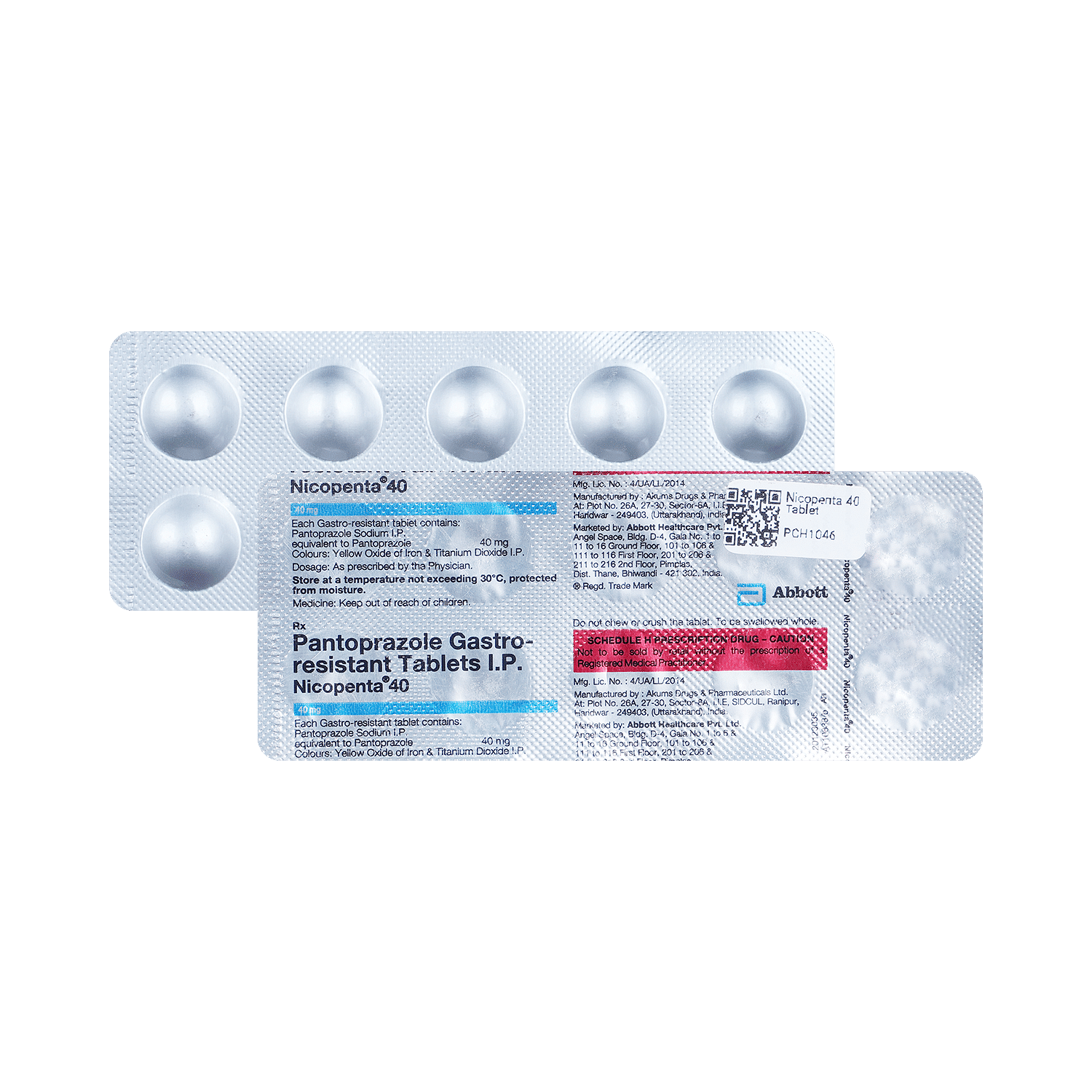
Nicopenta 40 Tablet
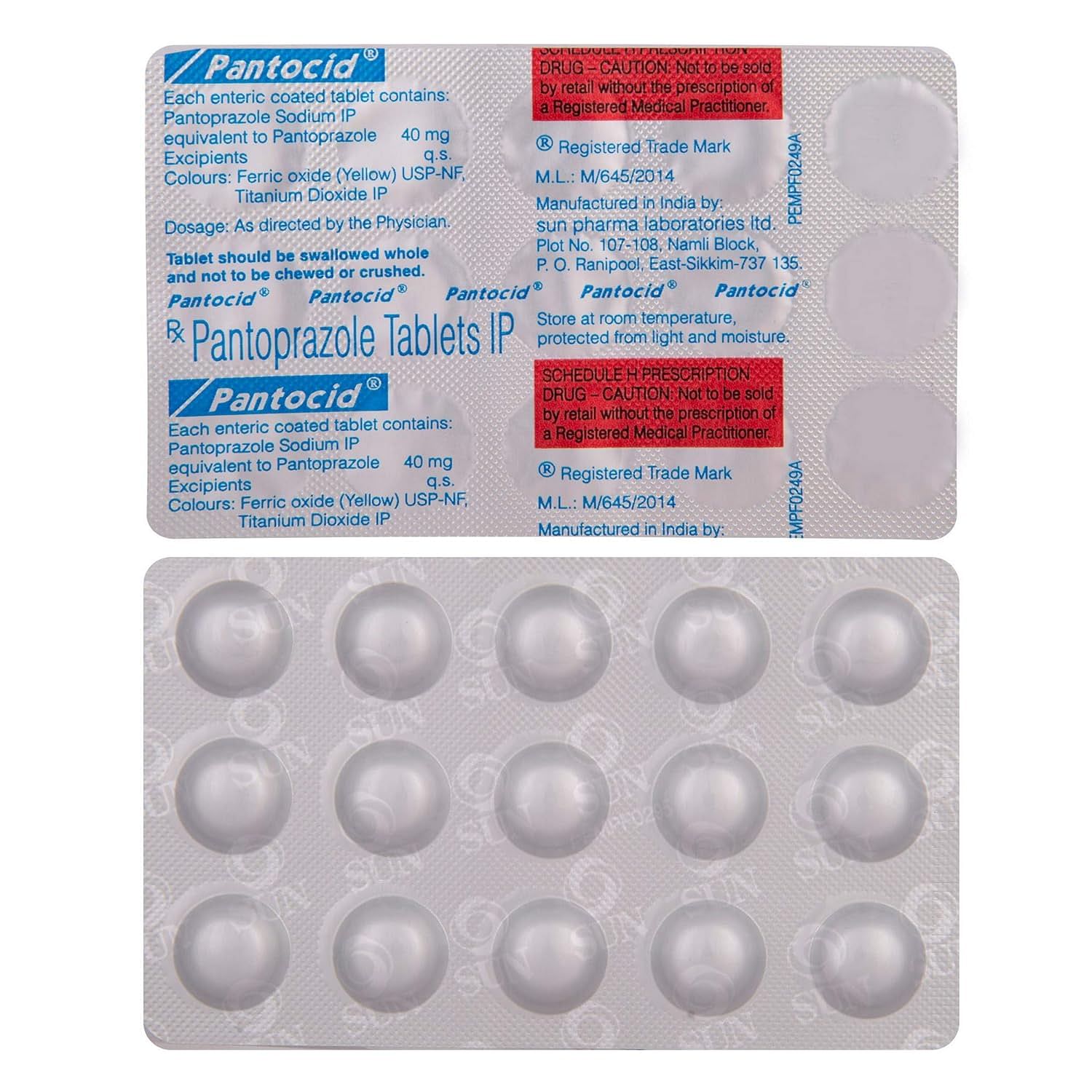
Pantocid 40 Tablet
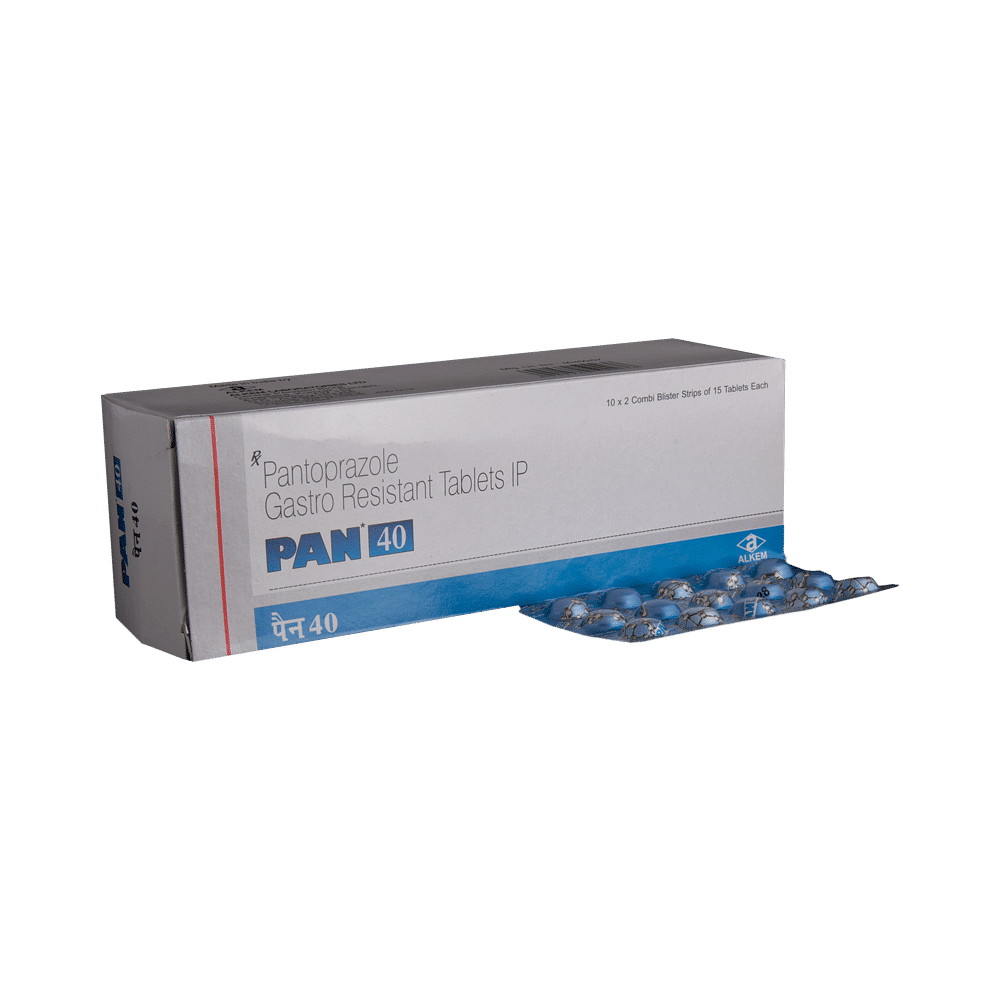
Pan 40 Tablet
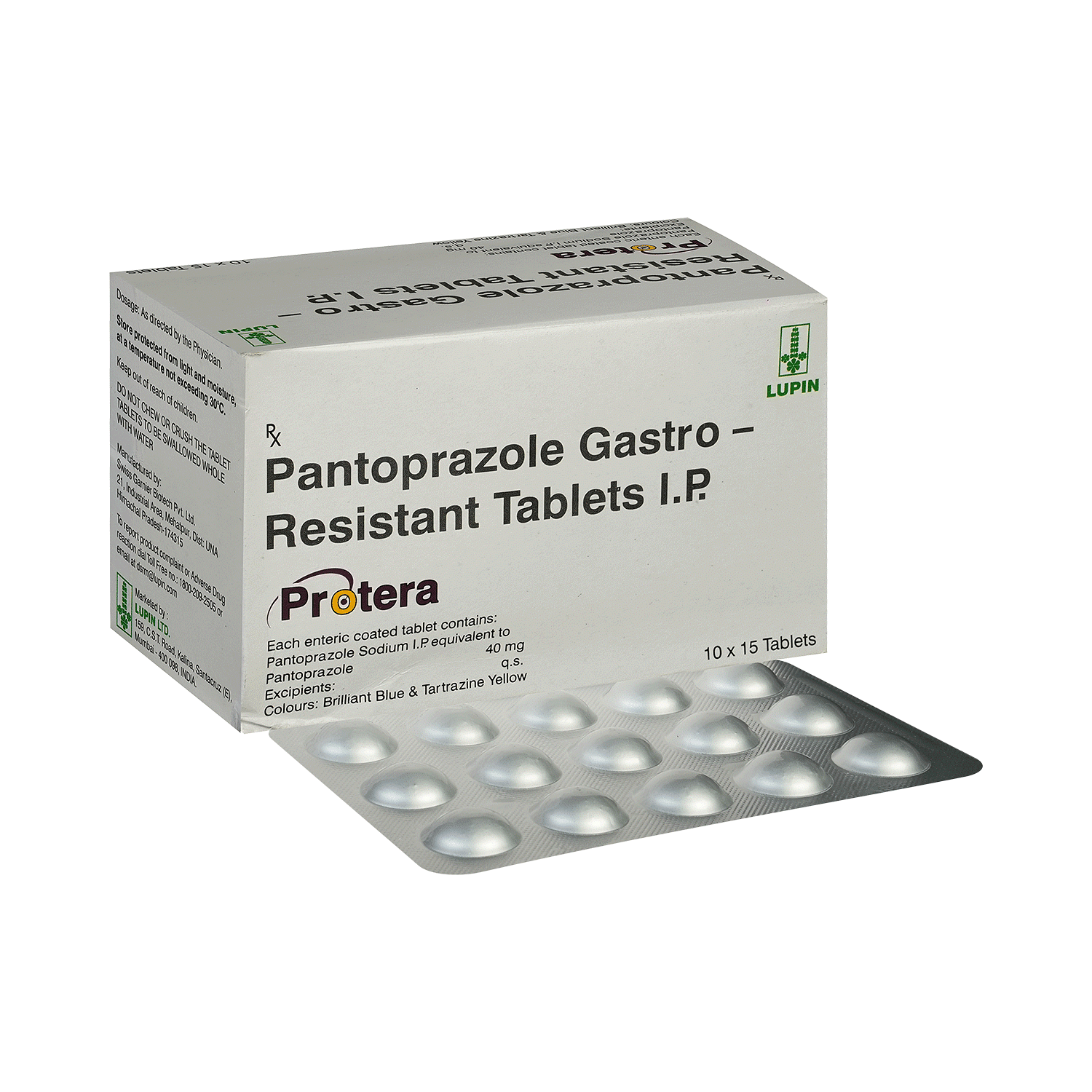
Protera Tablet
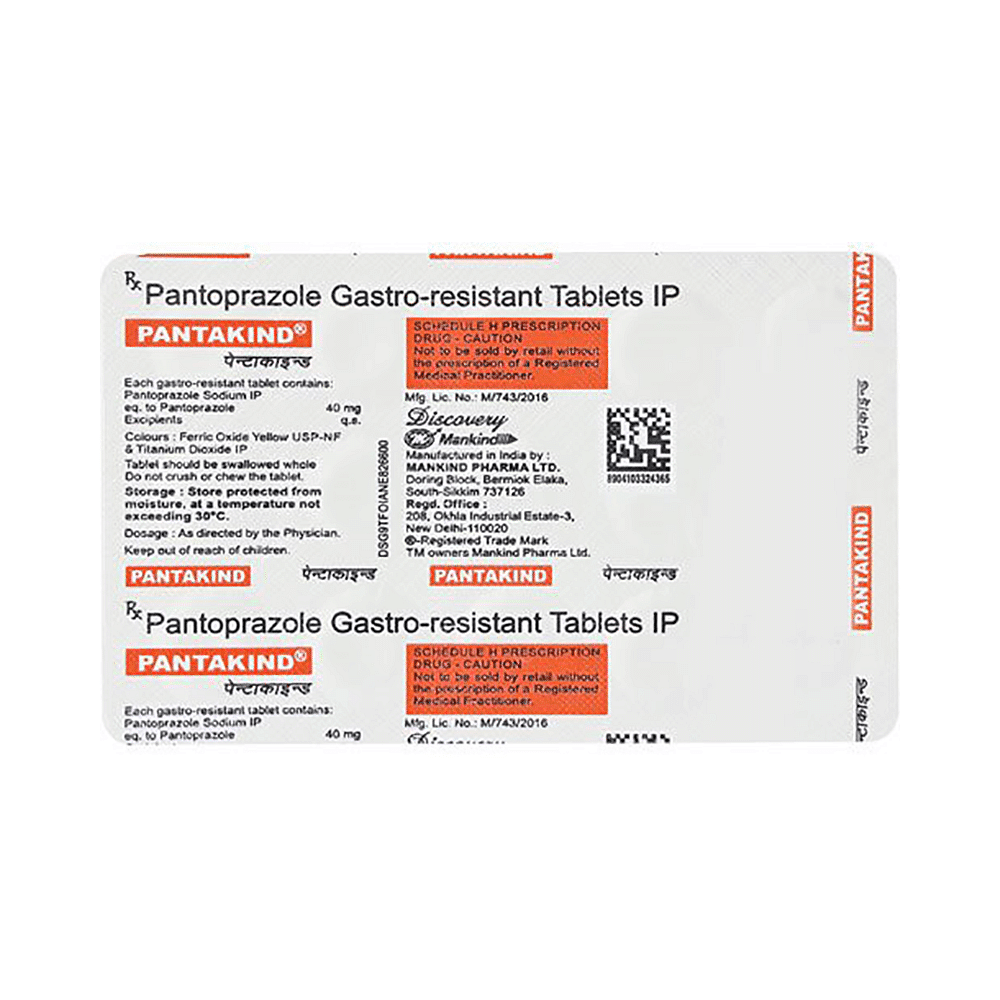
Pantakind Tablet

Pentaloc 40 Tablet
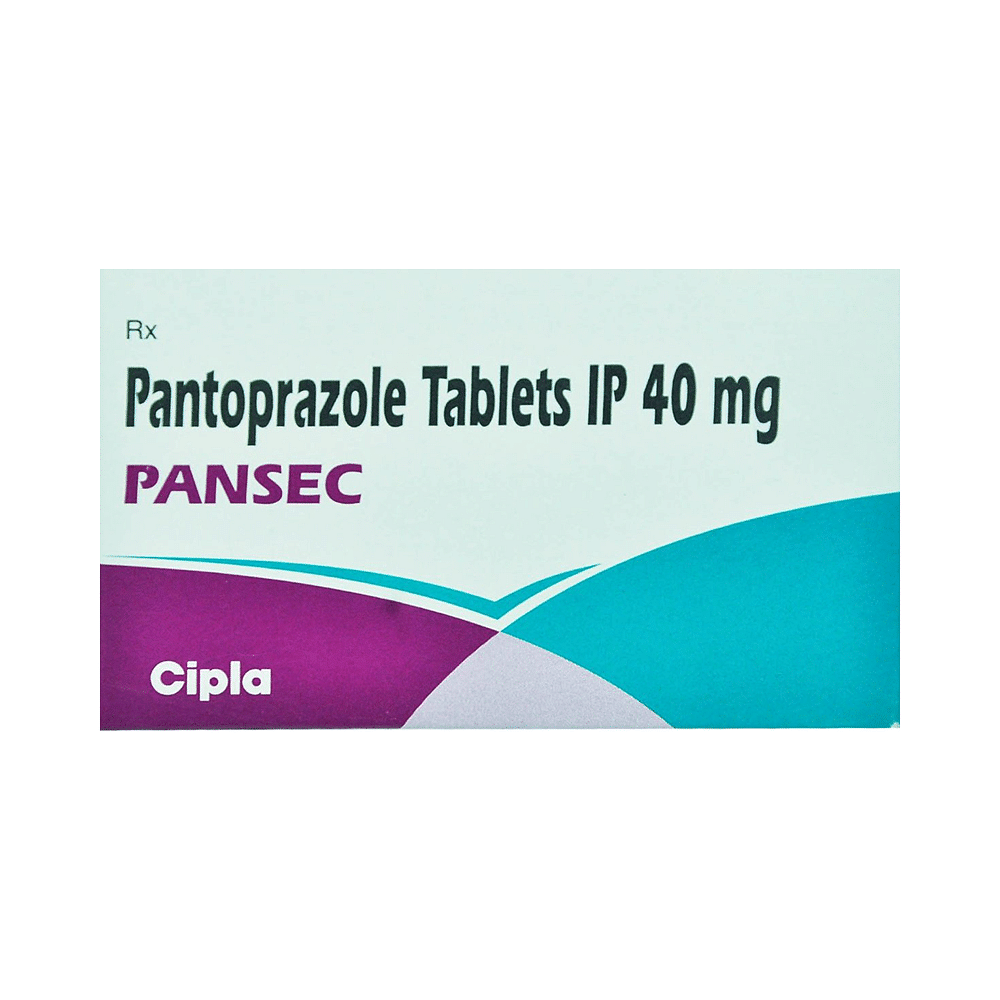
Pansec Tablet
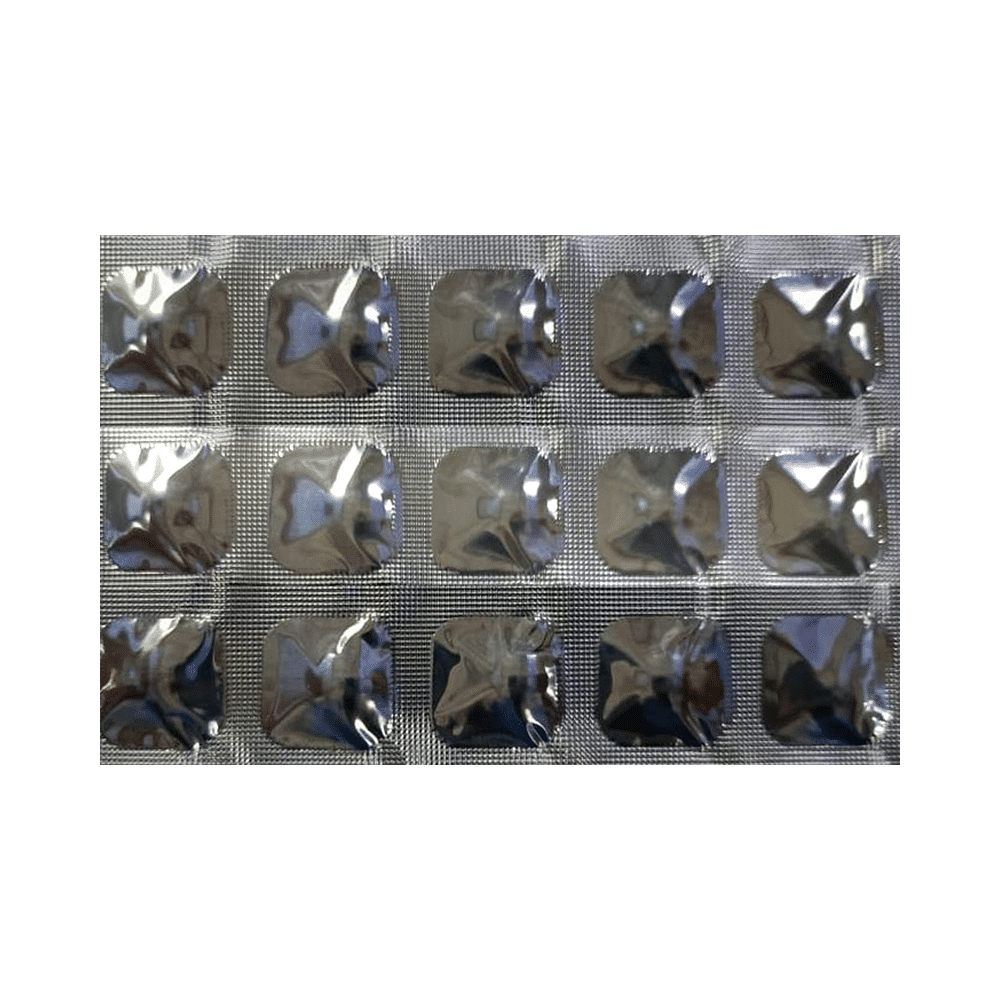
Zipant 40 Tablet

Pantosec Tablet
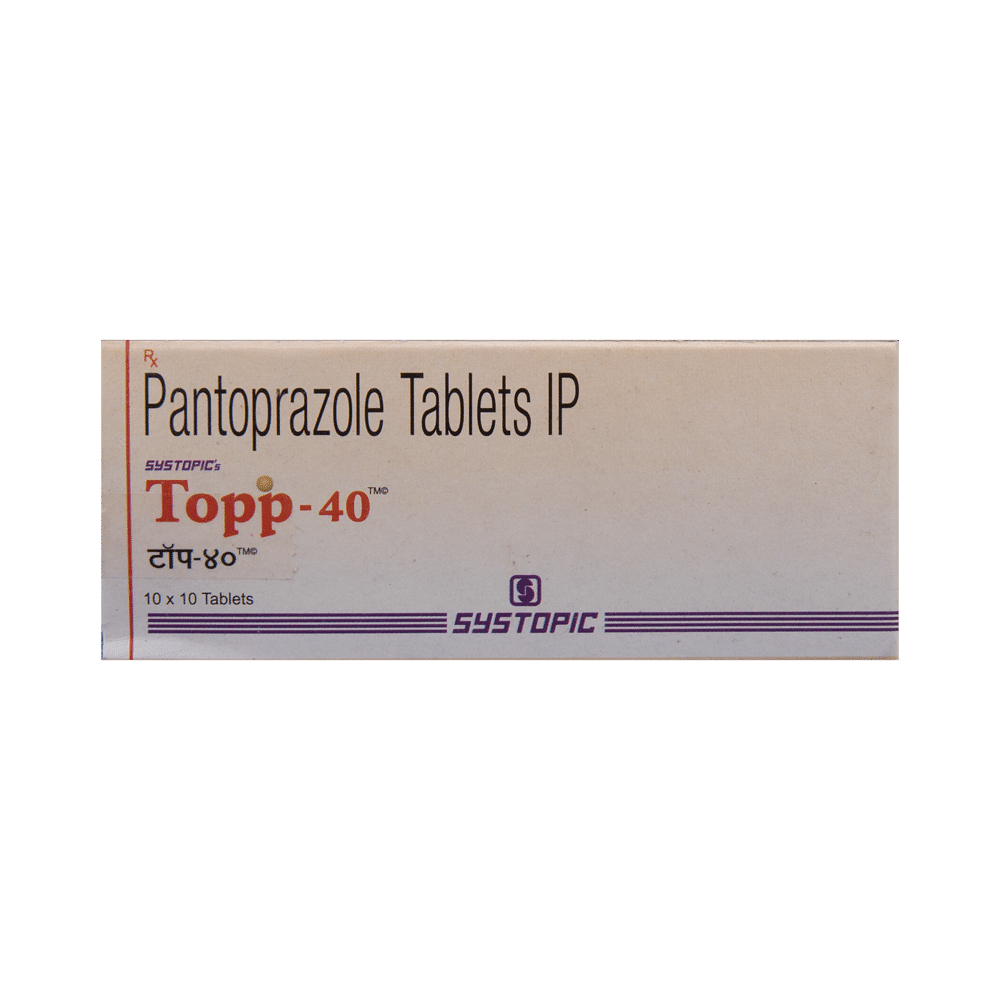
Topp-40 Tablet
Frequently asked questions
What is Pantomac Tablet used for?
Pantomac Tablet is prescribed for the treatment of peptic ulcer disease, reflux esophagitis (also known as GERD), or gastroesophageal reflux disease. It prevents acidity associated with the use of painkillers. Pantomac Tablet is also used to treat a condition associated with excessive acid production in the stomach, called Zollinger-Ellison syndrome (ZES).
How long does it take for Pantomac Tablet to work?
You may start feeling better within 2 to 3 days. It can take up to four weeks for Pantomac Tablet to work properly and relieve symptoms fully.
Is a single dose of Pantomac Tablet sufficient?
A single dose may not be sufficient for complete relief. However, with several doses of Pantomac Tablet, you may get some relief from symptoms. It is usually used only for short-term relief of heartburn, indigestion, or acid reflux. However, if needed for longer-term treatment, such as peptic ulcers and ZES, Pantomac Tablet can be prescribed for a longer duration.
Is Pantomac Tablet safe?
Pantomac Tablet is considered relatively safe. Most individuals taking Pantomac Tablet do not experience side effects. It is important to take it as directed by your doctor for the best results.
Can I take Pantomac Tablet long-term?
Pantomac Tablet is typically prescribed only for short-term use. However, if necessary, such as for peptic ulcers or ZES, Pantomac Tablet may be prescribed for a longer duration. Long-term use may increase the risk of side effects and must be discussed with your doctor. Please follow your doctor's instructions for Pantomac Tablet.
What are the long-term side effects of Pantomac Tablet?
If Pantomac Tablet is used for more than 3 months, some potential long-term side effects may occur. These include low magnesium levels in the blood (which can cause fatigue, confusion, dizziness, or shakiness). You may also experience muscle twitches or irregular heartbeat. If the use is extended for over a year, you may have an increased risk of bone fractures, stomach infections, and vitamin B12 deficiency.
What is the best time to take Pantomac Tablet?
Usually, Pantomac Tablet is taken once daily, first thing in the morning. If you choose to take two doses a day, one dose in the morning and one dose in the evening.
Can I stop taking Pantomac Tablet if I feel better?
If you have been taking Pantomac Tablet for an extended period of time, abruptly stopping it may lead to increased acid production, potentially worsening your symptoms. It is crucial to discuss any dose changes or the possibility of discontinuing Pantomac Tablet with your doctor.
Does Pantomac Tablet cause weight gain?
While rare, long-term treatment with Pantomac Tablet may lead to weight gain. This could be due to relief from reflux symptoms that may encourage you to eat more frequently or heavier meals.
Can I drink alcohol while taking Pantomac Tablet?
No, it is not advised to consume alcohol along with Pantomac Tablet. While alcohol does not directly affect the working of Pantomac Tablet, it may increase acid production and potentially worsen your symptoms.
Can I take antacids with Pantomac Tablet?
Yes, you can take antacids along with Pantomac Tablet. Take them 2 hours before or after taking Pantomac Tablet.
What dietary changes should I make for relief from acidity?
Pantomac Tablet is best taken one hour before meals. It's also important to avoid spicy and fatty foods while taking this medication. Additionally, stay away from caffeinated drinks like tea, coffee, and cola.
Are painkillers safe to take with Pantomac Tablet?
Yes, it is safe to take painkillers alongside Pantomac Tablet. Pantomac Tablet prevents acidity caused by painkillers, and painkillers are typically taken after or with meals.


